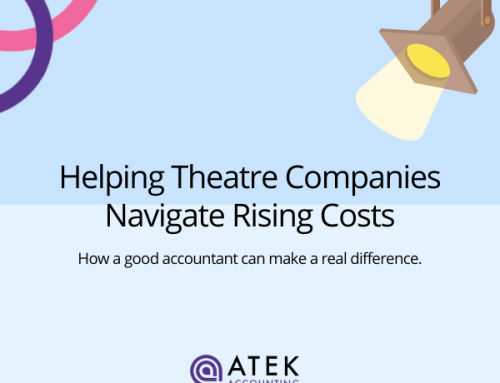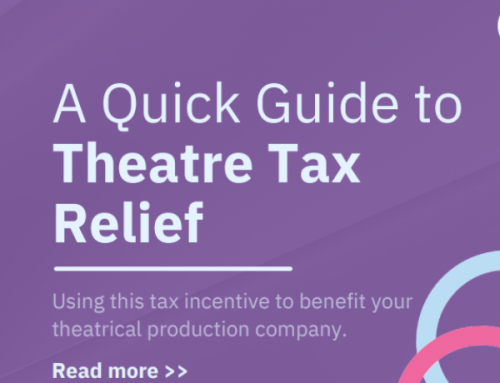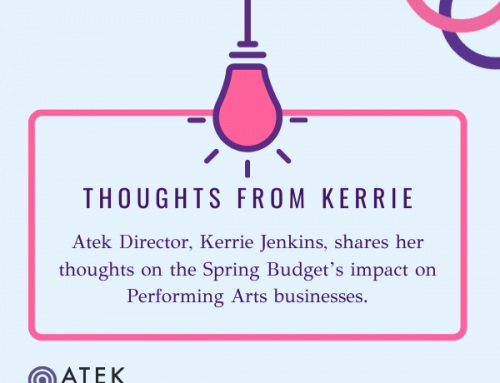 If you’re running a dance studio, a theatre training programme, a stage school, acting classes, a film school, or any other type of performing arts school, then you have a multitude of transactions occurring on a daily basis.
If you’re running a dance studio, a theatre training programme, a stage school, acting classes, a film school, or any other type of performing arts school, then you have a multitude of transactions occurring on a daily basis.
As a business owner, it is important to stay on top of your financial transactions. This means tracking every sale and expenditure in order to keep your business’ finances organised and ensure that you are paying the right amount of tax. However, this can feel overwhelming when you first get started!
Understanding your business’s financial tracking and the essential transaction types:
Daily Business Transactions
There are several different types of transactions that you need to track day-to-day for your school.
Transactions include:
- Customer invoices
- Vendor invoices
- Payroll
- Banking transactions
- Customer cheques or deposit slips
- Cancelled cheques
These are just a few of the transactions that you need to track on a daily basis. Depending on the variety of services you offer, there may be other transactions that you need to track as well. For example, if you sell products at your school or online, you will also need to track inventory and shipping costs.
It’s important to keep on top of these transactions, as they will give you a clear insight into your business’ finances. This way, you can make sure that you are keeping accurate records and that your business is running smoothly.
Month End Transactions
At the end of each month, you will also need to track some additional transactions.
Transactions include:
- Bank reconciliation
- Accounts receivable
- Accounts payable
- Cheques and deposit registers
- Sales report
- Inventory ageing report
- Payroll register
- Monthly income statement
- Balance sheet
Tracking these transactions will give you a clear picture of your business’s financial health – and help you identify areas where you may need to make changes or improvements. You should also compare these transactions against the previous month, as well as the same month last year, to get a measure of your business’s growth.
Year-End Financial Transactions
At the end of the year, you will need to track some additional financial transactions.
Annual transactions include:
- Income statement
- Balance sheet
- Cash flow statement
These documents are important for tax purposes. They will also give you a good indication of your business’s financial health for the year. You can use this information to identify areas where you may need to make changes or improvements before problems begin to pile up.
Cloud Accounting Software
It may seem impossible to keep track of all these transactions, but thankfully, there are some tools that can help. Enter: cloud accounting software.
Cloud accounting software makes it easy to track your business’ finances and see where your money is going.
With cloud accounting software, you can automate invoices, upload receipts via your smartphone, keep an eye on cash flow, and generate detailed financial reports with the click of a button. Using this technology, you can gain detailed financial insight into your business while also saving time.
There are many different cloud accounting software options available.
Popular cloud accounting software includes:
- Xero
- QuickBooks
- Sage
Each of these software options has different features and pricing plans. It’s best to speak to your accountant or financial advisor about the program and subscription package that best suit the needs of your business.
Optimise your business transactions with Atek
Keeping track of your financial transactions is essential for keeping accurate records and ensuring that your business is running smoothly. With classes, students, staff, and products all producing transactions – it is a lot to manage. At Atek, we use tools such as Xero and Dext to help our clients automate their processes – so they can spend their time building their businesses, not tracking down invoices. If you think we can help you get control of your finances, please contact us and let’s get started.
Sometimes, people come to us because they’re worried about the state of their accounts and want to get them sorted. Maybe a previous accountant let them down, or perhaps they tried to manage it themselves and got overwhelmed. Either way, we don’t judge – we just want people to feel in control and take that weight off their minds. If your accounts are in a bit of a state and need some urgent attention, get in touch now and we’ll see what we can do.
More resources:













